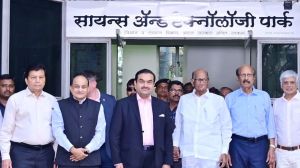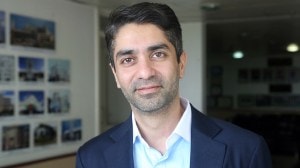Malaysian crisis
The Organiser editorial demand that the Indian government come to the help of people of Indian origin in Malaysia.

The Organiser editorial demand that the Indian government come to the help of people of Indian origin in Malaysia. 8220;Malaysia is rocked by protests of the ethnic Indian community for the last several months. The people of Indian origin who constitute the second largest minority in Malaysia are desperately trying to get their voice heard,8221; it says. It also points out that a few months ago they had approached the UN citing serious human rights violations. They demanded the intervention of the international body against the systematic ethnic cleansing and genocide by the Islamist regime in the country, adding, 8220;thousands of Hindu temples were demolished in Malaysia under various pretexts, ranging from development, expansions of roads, construction of residential colonies and alleged encroachments8230; India cannot afford to remain a silent spectator to this modern-day holocaust. India has to act immediately and decisively before it is too late.8221;
Bound to tradition
Sandhya Jain8217;s column touches upon former American President Jimmy Carter8217;s Christian evangelism in Nepal, allegedly with the support of the Maoists, but points out that there is popular resistance. 8220;During Vijayadashami celebrations in Kathmandu earlier in October hundreds of students and families stood hungry in serpentine queues at Narayanhity Royal Palace for public darshan and traditional blessings from King Gyanendra and Queen Komal. The spontaneous show of public reverence for the endangered monarch came as a shock to Nepal8217;s ruling parties and Maoists.8221; Support for traditions is also evident from the widespread belief that the absence of the king from temple festivities would be a bad omen.
India too soft
An article by J.G. Arora suggests a solution to 8220;defeat daily attacks on India8221;. He writes: 8220;Considering the continuing Pak-Bangla demographic aggression and terrorist attacks, war against Pak-Bangla terror is inevitable. The day India stops wailing and takes the war to the enemy territory, India would start wining the war against the terror. India has lost more soldiers in Pak-Bangla sponsored terrorist attacks than in 1965, 1971 or 1999. Terrorism persists because its victims surrender. India has the capability to smash Pak-Bangla terrorism, but not the will. Attacks continue because India does not respond.8221; He also believes that peace talks and confidence building measures like Indo-Pak and Indo-Bangla bus and rail links must be discarded since they are inviting more terrorists to walk into India to attack security forces and innocent persons, and blow up temples.
Compiled by Varghese K. George
- 01
- 02
- 03
- 04
- 05































